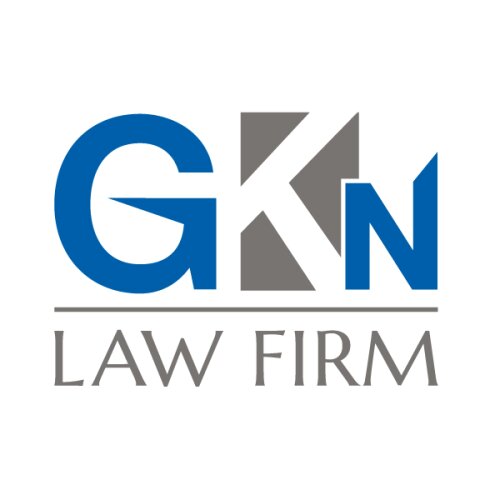Best Lawsuits & Disputes Lawyers in Liverpool
Share your needs with us, get contacted by law firms.
Free. Takes 2 min.
List of the best lawyers in Liverpool, Australia
About Lawsuits & Disputes Law in Liverpool, Australia
Liverpool, a growing suburb within the bustling Greater Sydney area in New South Wales, Australia, presents various opportunities and challenges, which can sometimes lead to legal disputes. Lawsuits and disputes law encompasses a broad spectrum of legal issues that individuals or businesses may encounter, ranging from contractual disagreements, property disputes, employment issues, to family and estate disputes. Handling these matters often requires a comprehensive understanding of both local and state legislation. The legal framework governing lawsuits and disputes in Liverpool is influenced by both the state’s laws and specific local regulations, making it imperative to seek knowledgeable legal advice.
Why You May Need a Lawyer
There are numerous situations where one might require legal assistance in the realm of lawsuits and disputes. Common scenarios include disagreements over contract terms, property or boundary disputes, commercial litigation, intellectual property rights, employment disputes, personal injury claims, and defamation cases. Additionally, family law issues such as divorce, child custody, and estate planning disputes often necessitate legal intervention to ensure fair and equitable resolutions. Seeking a lawyer's expertise can provide clarity, protect your rights, and increase the likelihood of a favorable outcome.
Local Laws Overview
Liverpool, being part of New South Wales, adheres to the state's common laws while also incorporating specific local regulations. Key legal aspects relevant to lawsuits and disputes here include:
- Contract Law: Enforcing the terms of a contract and resolving breaches.
- Property Law: Property disputes often concern land or boundary issues requiring understanding of local zoning laws and historical rights.
- Employment Law: Includes workplace disputes, unfair dismissal claims, and issues related to employment contracts.
- Consumer Protection: Protecting the rights of consumers and ensuring fair trade practices are adhered to.
- Family Law: Governs family relationships, divorce, custody, and support issues, often resolved in the Family Court system.
- Tort Law: Involves personal injury claims and negligence cases.
Understanding these aspects is crucial for anyone embroiled in a legal dispute in Liverpool.
Frequently Asked Questions
What should I do if I receive a lawsuit notice?
Immediately seek legal advice to understand your position and prepare an appropriate response. Ignoring it can lead to unfavorable judgments against you.
How long do I have to file a lawsuit?
The limitation period varies depending on the nature of the dispute. For example, personal injury claims typically have a three-year limitation period in New South Wales.
Can I represent myself in court?
While possible, it is not recommended due to the complexity of legal procedures and the advantage an experienced lawyer provides in advocating your case.
What kinds of evidence are needed in a dispute case?
Documentary evidence, witness statements, expert reports, and physical evidence can all play crucial roles depending on the dispute type.
Is mediation a viable alternative to going to court?
Yes, mediation is often encouraged as it can be quicker, less stressful, and more cost-effective, potentially leading to mutually agreeable resolutions.
What costs are involved in hiring a lawyer for a dispute?
Lawyers' fees vary depending on the case’s complexity and duration. Costs may include hourly rates, fixed fees for specific services, and court filing fees.
How does the court determine rulings in disputes?
The court evaluates evidence, hears witnesses, considers legal arguments, and then applies relevant laws to make decisions meant to be fair and just.
What is a settlement and how does it work?
A settlement is an agreement reached between parties to resolve the dispute out of court, often involving negotiated terms beneficial to both sides.
Where can I check the progress of my case?
The New South Wales online court registry system provides updates on the status of ongoing cases, or your lawyer can keep you informed of developments.
Are business disputes handled differently than personal disputes?
Yes, business disputes may involve specific commercial courts or tribunals and often require specialized legal expertise in commercial law.
Additional Resources
For further assistance, consider the following resources:
- NSW Legal Aid: Offers free legal advice and assistance for eligible individuals.
- Law Society of NSW: Provides a directory of solicitors who specialize in various dispute areas.
- Community Justice Centres: Alternates to dispute resolution through mediation services.
- NSW Fair Trading: A useful resource for consumer-related disputes.
- Australian Competition and Consumer Commission (ACCC): Provides information on consumer rights and business obligations.
Next Steps
If you find yourself needing legal assistance in dealing with a lawsuit or dispute, consider the following steps:
- Evaluate the specific details of your dispute and gather relevant documentation and evidence.
- Consult with a qualified lawyer who specializes in the area of law pertinent to your dispute.
- Explore alternative dispute resolution methods like mediation or arbitration as potential cost-effective solutions.
- Ensure you fully understand your legal rights and obligations as advised by your lawyer.
- Prepare for the possibility of going to court, keeping informed about timelines, costs, and procedures involved.
Addressing legal disputes proactively with the right professional guidance can significantly impact the outcome and your peace of mind.
Lawzana helps you find the best lawyers and law firms in Liverpool through a curated and pre-screened list of qualified legal professionals. Our platform offers rankings and detailed profiles of attorneys and law firms, allowing you to compare based on practice areas, including Lawsuits & Disputes, experience, and client feedback.
Each profile includes a description of the firm's areas of practice, client reviews, team members and partners, year of establishment, spoken languages, office locations, contact information, social media presence, and any published articles or resources. Most firms on our platform speak English and are experienced in both local and international legal matters.
Get a quote from top-rated law firms in Liverpool, Australia — quickly, securely, and without unnecessary hassle.
Disclaimer:
The information provided on this page is for general informational purposes only and does not constitute legal advice. While we strive to ensure the accuracy and relevance of the content, legal information may change over time, and interpretations of the law can vary. You should always consult with a qualified legal professional for advice specific to your situation.
We disclaim all liability for actions taken or not taken based on the content of this page. If you believe any information is incorrect or outdated, please contact us, and we will review and update it where appropriate.
Browse lawsuits & disputes law firms by service in Liverpool, Australia
Liverpool, Australia Attorneys in related practice areas.









